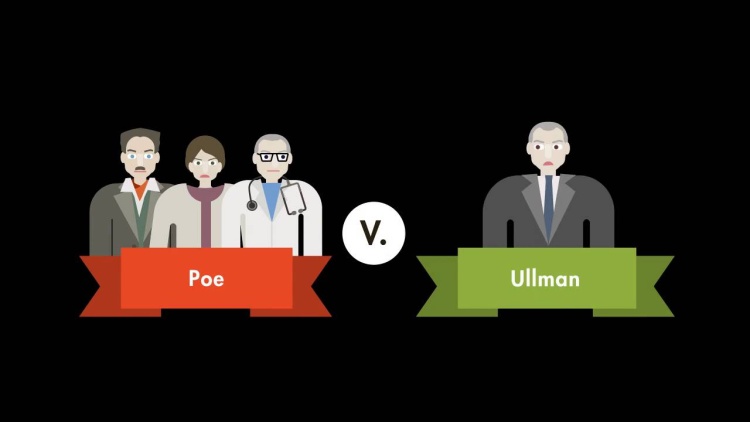Poe v. Ullman
United States Supreme Court
367 U.S. 497 (1961)
- Written by Megan Petersen, JD
Facts
This lawsuit against Ullman (defendant), attorney for the State of Connecticut, combined three separate actions, each challenging the constitutionality of Connecticut state statutes that prevented the use of contraceptive devices, even by married couples, and the giving of medical advice in the use of such devices. The first suit was brought by Paul and Pauline Poe (plaintiffs), a married couple that had experienced three pregnancies resulting in children born with severe birth defects, which caused severe physical and emotional trauma to the Poes. The Poes consulted with Dr. Buxton, who suggested the use of contraceptive devices to prevent future pregnancies. The second suit was brought by Jane Doe (plaintiff), a married woman whose previous pregnancy had caused her extreme physical illness. Doe also consulted with Dr. Buxton, who recommended that she use contraception. The third suit was brought by Dr. Buxton (plaintiff), who sought declaratory relief on the grounds that the Connecticut statutes deprived him of his liberty and property. The Connecticut Court of Errors dismissed the case. The plaintiffs appealed to the United States Supreme Court seeking declaratory relief.
Rule of Law
Issue
Holding and Reasoning (Frankfurter, J.)
Concurrence (Brennan, J.)
Dissent (Douglas, J.)
Dissent (Harlan, J.)
What to do next…
Here's why 904,000 law students have relied on our case briefs:
- Written by law professors and practitioners, not other law students. 47,100 briefs, keyed to 995 casebooks. Top-notch customer support.
- The right amount of information, includes the facts, issues, rule of law, holding and reasoning, and any concurrences and dissents.
- Access in your classes, works on your mobile and tablet. Massive library of related video lessons and high quality multiple-choice questions.
- Easy to use, uniform format for every case brief. Written in plain English, not in legalese. Our briefs summarize and simplify; they don’t just repeat the court’s language.





